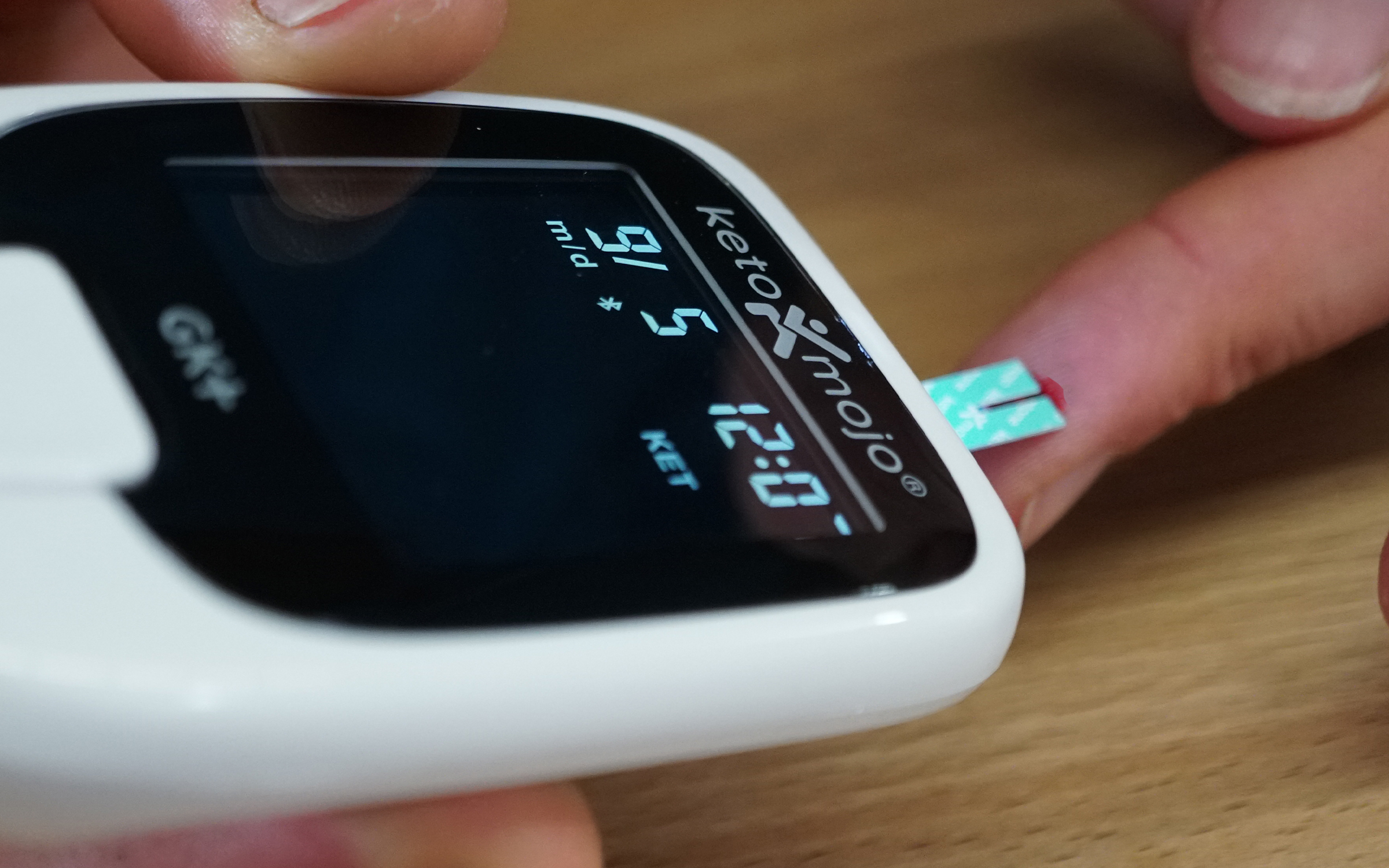
I bought a ketone meter two years ago when I began to use therapeutic ketosis as a treatment for my brain disorder.
I was desperate to try an alternative to the antipsychotics I’d been taking for a decade to treat bipolar disorder. The sedating side effects of medications had been ruining my life for far too long. I gained over seventy pounds as a result of Olanzapine.
I came across the work of Dr. Christopher Palmer, author of Brain Energy, after spending countless hours searching the internet for a non-pharmaceutical treatment to improve my mental health. When I found a video of Dr. Palmer explaining that the ketogenic diet can be used as a treatment for mental disorders, I was elated. At the time, I was a vegan for ethical reasons, and I wasn’t happy that the ketogenic diet tends to rely on animal nutrition. I eventually decided to incorporate local family farm eggs, but I am still a dairy-free vegetarian. Initially, it was tough. It seemed like I could barely eat anything. At the same time, I was very motivated, because I was beginning to understand that metabolic treatments can provide a path to a happier, healthier life.
Before learning about Dr. Palmer’s work, I had dabbled in extended water fasting in an attempt to lose weight and experience the benefits of autophagy. At the time, I had no idea that fasting could treat my mental disorder, although I had noticed that in a fasted state, I felt heightened energy and clearer cognition. So, it was easy for me to believe Dr. Palmer’s evidence-based brain energy theory that ketosis, a fasting mimicking state, might very well be a transformational treatment.
Since embracing the brain energy theory of mental illness – that mental disorders are metabolic disorders of the brain – I prefer to use the term metabolic brain dysfunction to describe my diagnosis. Unlike bipolar disorder, which is considered a chronic, life-long illness, metabolic brain dysfunction has a known root-cause that can be treated through metabolic interventions and put into full remission.
I experienced so many immediate benefits on the keto diet that, within a month, I knew I wanted to follow it for the long haul. Most people on a therapeutic ketogenic diet need to measure their ketone levels to make sure they are in ketosis.
I started to monitor my ketones with Keto Mojo Urine Test Strips. As I became increasingly fat-adapted, using a blood meter was a more convenient and reliable way to monitor my ketones. I purchased my Keto Mojo GK+ Blood Ketone Meter because I had been happy with their urine test strips and saw that all of their products had positive reviews. The meter is easy, simple and painless to use, and gives me an accurate picture of my ketone levels so that I can rest assured my diet is on point. In the first few months of implementing metabolic treatments, I tracked my ketone levels morning and evening, which provided key insights into what to eat and what to avoid. One thing that became clear immediately was to stay away from most packaged, processed foods, even those with a low net carb count, advertised as “keto.” Almost without fail, those tasty treats would knock me out of ketosis. So, early on, I opted for a real food diet.
As a vegetarian, I wanted to continue to eat the rainbow, indulging in veggies galore. I have never been able to follow a diet that requires a lot of tedious measuring, counting, and tracking. I happily traded carb counting for intuitively eating keto- friendly real foods in satisfying amounts, and relying on my ketone meter to ensure I stayed on track. I found that I could eat plenty of veggies drenched in fatty dressings or deliciously fried in olive oil, until I was fully satiated, and still maintain a ketone level over the 1.5 millimoles per liter that is recommended for my treatment.
Had I not gotten a meter and relied solely on carb counting, I would have limited my consumption of keto friendly veggies, low sugar fruits, and nuts more than was actually necessary. I also periodically practice intermittent and extended fasting, and I use my meter to make sure I get into the therapeutic ketosis zones of over 3 millimoles per liter.
The combination of a ketogenic diet and fasting has been nothing short of miraculous for me. I am now approaching two years without medication and have never felt better physically, mentally or emotionally. I would recommend a Keto Mojo meter to anyone who wants to try a ketogenic diet as a treatment for metabolic brain dysfunction.
Disclaimer: Neither Dr. Palmer nor anyone volunteering for Brain Energy has any financial relationships with Keto Mojo. We are providing this information for educational purposes only. People interested in using the ketogenic diet as a treatment for any health condition should consult with their physician or healthcare professional first.
Hannah Warren is an artist, writer, and social entrepreneur. She joined Baszucki Group and its initiative, Metabolic Mind, in November 2023 as Mental Health Communications and Advocacy Manager. These organizations are focused on advancing the science of metabolic psychiatry to drive long term, systemic change in the mental health field, while equipping patients, families and clinicians with resources to implement metabolic therapies today. Hannah promotes the brain energy theory and spends much of her time researching and writing about metabolic interventions, as well as actively implementing treatments for neurometabolic dysfunction including a vegetarian, dairy-free keto diet, intermittent fasting, exercise and meditation.


